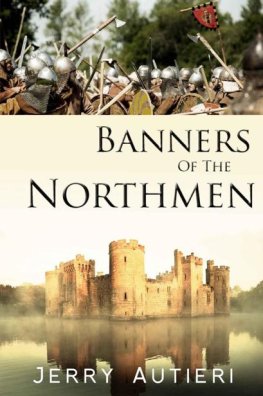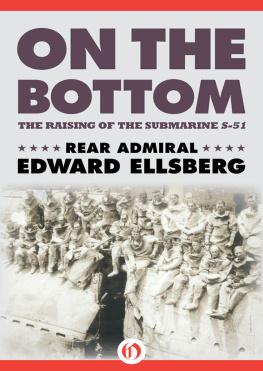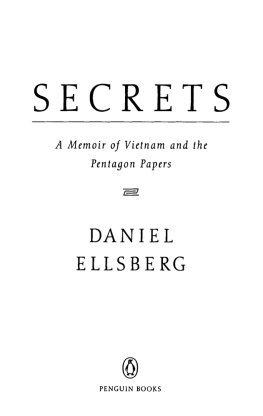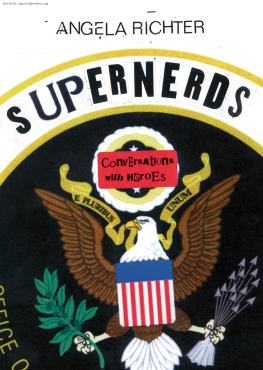CHAPTER
I T WAS RATHER COLD ALONG THE shores of Algeria and Morocco that early morning of November 8, 1942, when We came as friends to the coasts of North Africa.
Along the shores of the Red Sea on the other side of Africa at that same moment, it was rather hotterin fact it might have been called with no exaggeration infernally hot. There in the Red Sea, I was struggling that morning on the bottom of the ocean with an Italian naval mine apparently rigged inside a scuttled vessel as a booby trap to blow us all to hell if we dared to try to recover that sabotaged Italian ship.
In Massawa, stewing in the unbelievable heat of the Red Sea sun even in November, we had no illusions as to who our friends were. It was plain enough we had none, or we should never have been sent, war or no war, there to Massawa, the hottest spot on this earth, and then left forgotten till we were as thoroughly cured as desiccated fish beneath that inhuman Red Sea sun.
That Italian mine in the flooded forehold of the submerged Brenta, dimly visible to the heavily weighted diver who cautiously breasted his way about it on the sea floor, was not too much of a worry either to the diver on the bottom or to the rest of us on the surface just over him. He knew and we knew that one incautious contact with those deadly acid-filled leaden horns or the delicately balanced hydrostatic piston protruding from that steel, TNT-laden sphere which the Italians had evidently rigged out with loving care for our destruction, and we should all suddenly have our troubles ended together in a volcanic eruption of flame and water shooting us skyward.
Still we werent too much concerned. Long months of torture in the blazing heat and incredible humidity of Massawa had left us apathetic and drained of hope of escape. If we succeeded in removing that mine from inside the sunken ship and its half ton of TNT without detonating it, we might then recover the precious Brenta for Allied use. If we didnt and we touched off that booby-trapped mine in the process, we should be the gainers anyway. In one flaming instant our sufferings would be ended instead of being excruciatingly drawn out minute by minute, hour by hour, day by day, over still more agonized months till the flaming sun above us, as certainly but less mercifully, achieved the same result.
The diver, wiry little Buck Scougale, without ever having touched the mine, came up as instructed to report to me on the surface its description and what the Italians had done to it, so far as he could determine in the dim light of the ocean floor, and especially to its hydrostatic piston, to convert it to a booby trap for our destruction. After listening to his agitated account at some length, I called off all further diving on the Brenta and steamed back with my salvage crew to Massawa. There in the seclusion of my room ashore I might study more at leisure the blueprints (furnished me from Cairo by British Naval Intelligence) showing the normal workings of that death trap planted in the Brentas forehold, and figure what I might do, if anything, to outwit the Italians by removing the mine without exploding it.
Half-naked, soaked from head to foot with sweat, and oozing perspiration from every pore, I entered my room, tossed aside my sun helmet and my dark glasses. That room after a session outside beneath the Red Sea sun was always a shock. Inside it was only 95 F. because two large Westinghouse air-conditioning sets were running night and day with never a stop, to cool it down and dehumidify it. Coming in to that 95 after exposure to the ordinary Massawa heat and humidity outdoors was like being plunged abruptly into ice water. In spite of the heavy bathrobe in which I made haste to wrap myself, I shivered violently a few minutes from the chill. Then as I grew slowly accustomed to it, I locked all the doors to my room, unlocked the massive iron chest containing those highly confidential blueprints filched from the Italians in Rome itself by British espionage agents, and spread out the plans for inspection.
My knowledge of Italian was poor and I made very heavy weather deciphering the technical notes which explained the workings of that mine when rigged for normal operation beneath the sea to blow up any vessel unfortunate enough to pass over it.
A little music, I reflected, might ease my mental strain the while I sought to unravel the combined complexities of both unfamiliar Italian and even less familiar Italian naval ordnance.
Over my desk was a very fine short-wave radio set I had bought some months before from an officer of the Royal Navy, a Lieutenant Hibble. Hibble, till then one of my shipmates in misery in Massawa, had been so hurriedly detached between two suns that he had been forced to leave behind his most prized possession in his sudden departure by plane. I have no doubt, however, that if it had been essential to him in making the weight limit on that plane, Hibble would gladly have jettisoned all his clothes also down to his skin and departed Massawa in only his sun helmet and his dark glasses.
At any rate, there was the short-wave radio set, all mine for twenty pounds sterling in the swiftest radio deal on record.
Ordinarily now I shrank from turning it on. The set was good enough (where I was on the Red Sea) to bring in clearly every station in the eastern hemisphere. But at practically every point on the dial from all over Europe and Asia about all I ever heard was voices in German, Italian, or Japanese alternating in English with assorted traitors from Lord Haw Haw through Axis Sally and Ezra Pound to Tokyo Rose, broadcasting triumphantly the latest British or American disasters and usually in those days with no need to embellish them much with any lies.
Squeezed closely in on the dial between two Axis stations was B.B.C. in London, the solitary audible radio station on the dial still remaining in Allied hands. With care I could get B.B.C., but getting it was hardly any more comfort to me, for even B.B.C. had to admit the disasters, and the natural British regard for conservatism prevented it from fabricating any victories as an offset to cheer its listeners.
There in the Middle East on the shores of the Red Sea we were sandwiched in during, most of 1942 between two enemies. The Japanese tide was running in full flood from the east and promising to break through India to engulf us. Rommel and his invincible Afrika Korps were rushing irresistibly from the west across the Libyan Desert to the gates of Egypt. From there he was confidently expected hourly to crash through a demoralized British Eighth Army to overwhelm us. As a consequence, our position had never been one from which we might listen with any great nonchalance either to Lord Haw Haw on the one side or to Tokyo Rose on the other pouring into our ears from the radio the latest news of our increasingly hopeless situation and our inexorable doom.
To us few Americans in Massawa sent to struggle with the mass of wrecks littering its harbors, the pitiless sun overhead was as much our actual enemy as either of those to the east or to the west of us, and was as inexorably draining us of life. Then what inducement was there to turn on the radio to learn how much closer our human enemies had closed on us since yesterday, unless it might be to satisfy an idle curiosity as to which of our three enemies would spell our end soonest?











